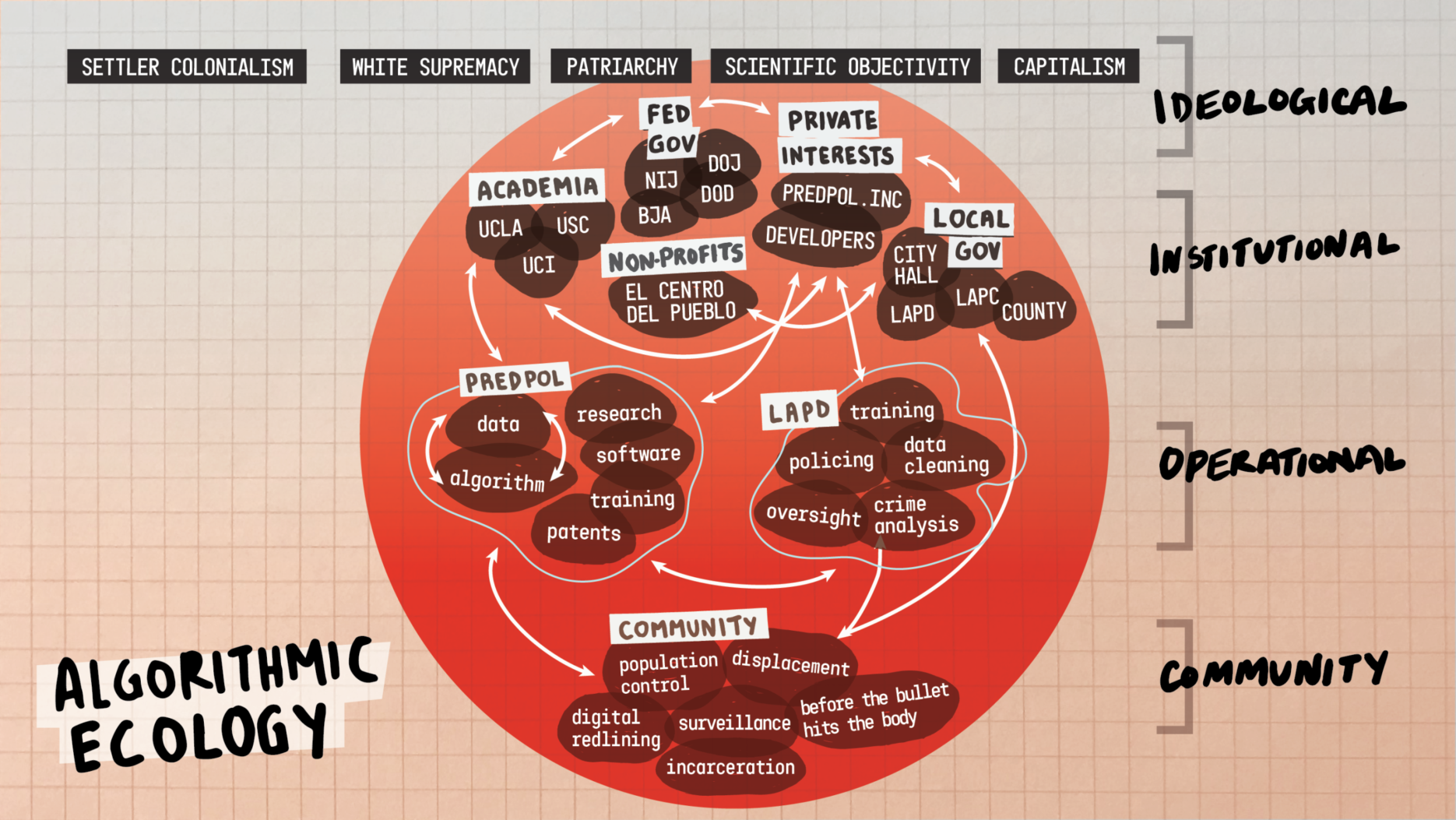“In an increasingly policed and surveilled world, algorithms have become critical sites of power, struggle and resistance. By telling the story of our fight against PredPol, a predictive policing technology, we are introducing an abolitionist model for analyzing algorithms: The Algorithmic Ecology. The Algorithmic Ecology is both a framework and an organizing tool that can be critically applied to any algorithm. This model decenters the algorithm itself, looks at the different actors that shape the algorithm, and illustrates whose interests the algorithm serves, with the ultimate goal of dismantling the actors creating algorithmic harm. The Algorithmic Ecology is also a reminder: We must critically examine what lurks beneath “scientific,” data-driven policing, and we must go beyond technology-centered critiques of algorithms and “dirty data.” “
TO SUMMARIZE:
- Community Impact: people who are most impacted by the algorithm, and who hold the power to resist it.
- Operationalization of Power: the technical components of the algorithm and the people who directly use those technical components.
- Institutions of Power: the institutions and entities that uphold the ideologies of power and fund, create, or otherwise influence the development and implementation of technology.
- Ideologies of Power: the values and ideologies that undergird and are perpetuated by the Algorithmic Ecology.
- Relationships of Power: the ways that power is exerted between entities.

“Free Radicals is an activist collective dedicated to creating a more socially just, equitable, and accountable science. We create accessible resources for political education on the intersection of science and social justice and collaborate with local progressive organizing efforts on issues related to science and technology.”




